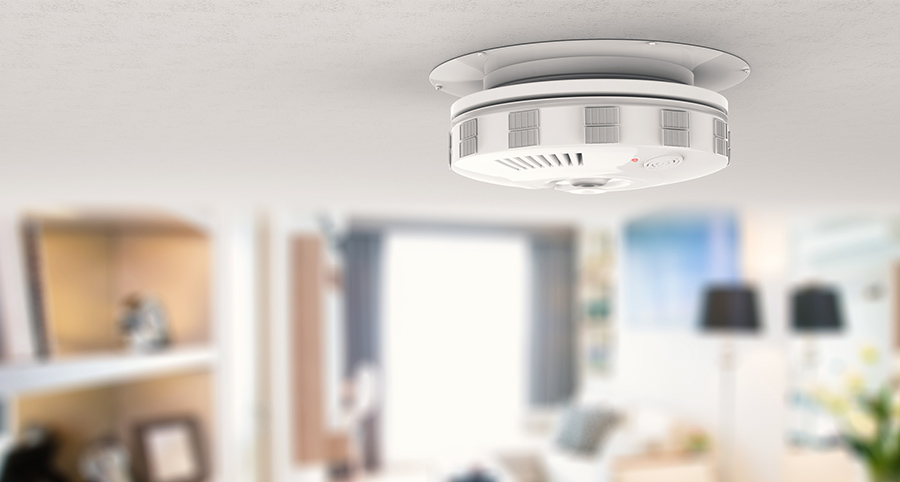Are there differences between regular smoke detectors vs. monitored fire alarms in Evanston?

In the Evanston smoke detector vs. monitored fire alarm discussion, there’s only one winner. Smoke detectors are an essential line of defense in guarding your house from emergency situations, but they have a few concerning shortcomings. Conversely, monitored fire alarms have more means to discover a fire and are able to contact help in the event of a disaster. Linking your fire alarms to a home security system also delivers extra benefits that your regular smoke detectors would only hope for.
The shortcomings of standard smoke alarms in [[targetlocaion]]
Protecting your home from fire is a chief concern for homeowners, and smoke detectors play an essential part in shielding your family. Despite that fact, smoke detectors have various drawbacks. For example, they are only able to react to smoke, not high temps. When there is an emergency in your house, you may not be alerted unless the smoke ascends to the smoke detector. Even though there are further unmistakable signs of fire -- including a marked rise in heat -- if there's no smoke, there is no sounding of your smoke detector.
In addition, smoke detectors only sound the alarm if they detect enough smoke. When a fire starts small, you may not be warned until the flames are out of control. Some smoke detectors use more than one sensor, which means they will be able to perceive smoke from both a raging fire and smoldering remnants. If they sound their alarm, it falls to the homeowner to contact emergency services after safely leaving the property.
Monitored fire alarms offer more benefits than ordinary smoke detectors
Although they look like regular smoke detectors, monitored fire alarms can do much more. If linked to a comprehensive home security system, they will:
- Detect fire with different sensor types: Similar to an ordinary smoke detector, this monitored device can trigger from an intense fire or one that has just started smoking. It will resonate a high-volume alarm whenever it senses a potential disaster.
- Discover fire with a abrupt heat surge: Your monitored fire alarm will even go off if it senses an unusual heat surge. Frequently, heat comes in advance of smoke. Added methods to uncover a fire equates to more means to safeguard your family.
- Warns trained monitoring specialists: Fires may occur when you are on site or somewhere else. No matter of the situation, your fire alarms will warn your monitoring agents, who can quickly contact first responders. When every tick of the clock is critical, it's comforting to realize that someone is always watching over your residence.
- Connects to home automation: Although the main job of a fire alarm is to detect dangerous situations and notify help, it may also integrate with other automated devices. For instance, a tripped alarm could make your system turn on the exhaust fan to hinder the spread of fire or turn on lighting so you can see the safest way out of your home.
Your monitored fire alarms are part of a comprehensive smart home
The best method to optimize your fire alarms is to integrate them with a Vivint home security system. Consult with a Vivint expert today and find the ideal smart home for your requirements. Call (847) 925-7636 or complete the form below to begin.